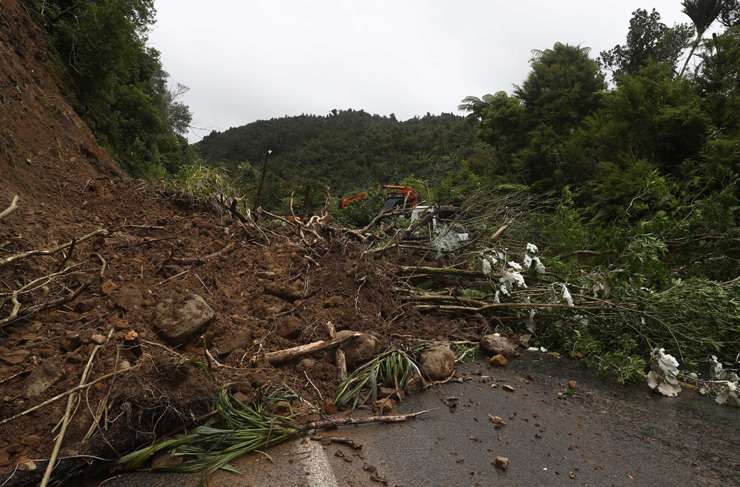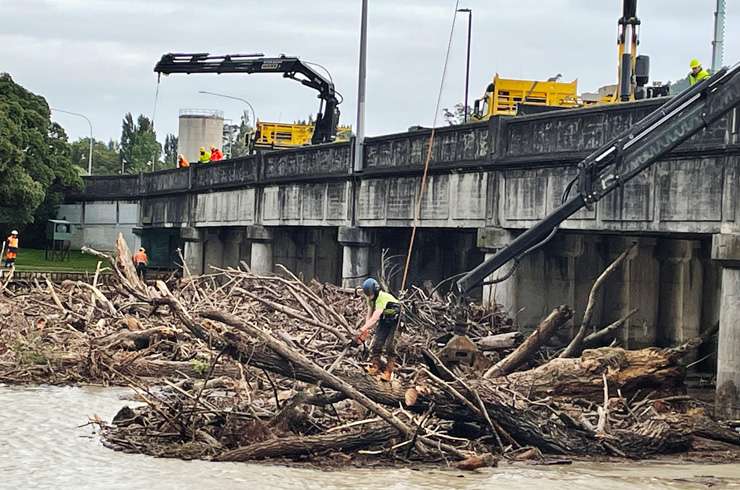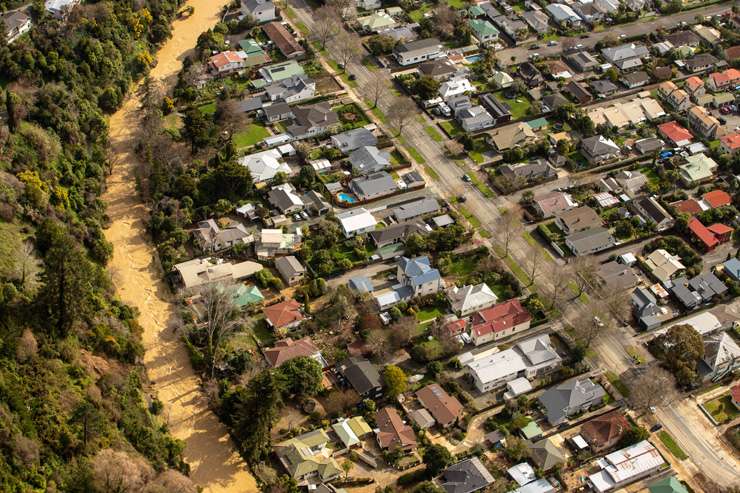Cyclone Hale is not likely to result in much impact to house prices in Gisborne Tairāwhiti, experts say, but they point out the extreme weather event is yet another reminder of the pressures being brought by climate change.
Asked if the cyclone would impact insurance premiums, Christian Judge, a spokesperson for the Insurance Council of New Zealand, said the answer was complex.
Insurers know there will be a number of severe weather events across the country this year, they just don’t know where or when, he says.
Nelson copped it last year and Gisborne so far this year but those events don’t mean insurance will go sky high in those areas, at least not directly.
Start your property search
Individual insurers in New Zealand take their own view on risk and pricing, and the claims history of an area is important, be that for coastal events, river floods or land that keeps having slips, Judge says.
Differential pricing according to risk is not new with insurers taking potential hazards into account with insurance premiums.
“It's down to every individual insurance company to take its own approach to risk and to build into its books how much risk they want to take on in a given area.”
There has been an upward increase of weather events each year with the industry now expecting to pay out more than $300m a year in general insurance claims due to extreme events.

A mud slide triggered by Cyclone Hale earlier this month blocked the SH25A.Thames-Coromandel highway. Photo / Hayden Woodward

Workers try to clear the trees pinned against Gisborne’s Gladstone Road Bridge. Cyclone Hale caused extensive flooding in the region and cut off communities. Photo / Grant Bradley
Adding to the picture are global weather events which have an impact on New Zealand premiums because of the way local companies reinsure with large global companies.
Judge says local insurers have regulatory requirements with the Reserve Bank about how to operate and they need to be able to show they would be left standing and able to settle claims for a one in 1000 year earthquake.
The way they typically do that is through a mix of reserves and “a big chunk” of reinsurance.
After the Canterbury earthquakes, about 80 per cent of claims were paid out by global insurers and that’s a good thing, he says.
But the global reinsurers are paying out on an increasing number of natural disasters globally so the market is more challenging for local insurers to buy in.
Judge is not saying Kiwi homeowners are directly affected by the big hurricane in Florida of several months ago, for example.
“But when you keep having major claims events that cost many tens of billions of dollars and you have several of these a year across the globe it is reflected in reinsurance costs that are faced by local insurers.

Nelson homeowners found themselves battling flood waters after a deluge hit the region mid last year. Photo / Tim Cuff
“You can't really draw a straight line - I can't say that's added X dollars to your premium, I can't do that, but you look at the rising cost of global climate related claims and it's difficult.”
Kelvin Davidson, chief housing economist with CoreLogic, says the impact of a cyclone on a housing market is hard to know and says research is being conducted on these issues.
An Otago University-based study on the impact of natural disasters on real estate (earthquakes and flooding) estimated that after floods in south Dunedin in 2015 there was a five to 10% impact on property prices in the immediate aftermath but it didn’t last.
“That’s to do with people being suspicious of the area, not wanting to pay, not knowing what their insurance might be, just general uncertainty, and maybe people wanting to get out of the area, too, and being prepared to sell at whatever price.
“But that five to 10% price effect went away pretty soon after. You know, people forget.”
Davidson thinks if there was an impact from Cyclone Hale on the Gisborne region’s housing market it, too, would probably disappear quickly, although for individual properties the impact could be more serious.
“They have been damaged, they've lost land to the sea, some things to be repaired, so for them obviously there's a bigger influence, but is there a long lasting impact on the value of their property - maybe not.”
The bigger issue of climate change is a large one for the industry, he says.

CoreLogic chief economist Kelvin Davidson says climate change "probably doesn't have the profile it should in the average buyer’s mind". Photo / Peter Meecham
Talking points are already around managed retreats from some coastal suburbs with some perhaps not existing in another 40 or 50 years.
The problem is it’s hard to price something that hasn’t happened yet, says Davidson.
“I mean, everybody knows it's coming and when things are slow creep and gradual and such a long-run influence, how do you deal with it right now?
“It probably doesn't have the profile it should in the average buyer’s mind but it's definitely growing.”
Last year, CoreLogic and German multinational insurance company Munich Re said the average annual cost of river flooding to residential buildings in New Zealand had already passed $100m and tipped that would rise significantly.
Munich Re’s New Zealand and Australian managing director Scott Hawkins said at the time New Zealand would see an increase in both the severity and frequency of weather events and that communities and people needed to manage their exposure to climate risks: “Weather-related disasters might in sum become as destructive to New Zealand as earthquakes.”
Davidson says more people and organisations are becoming more aware of risk, and says nowhere in the country is immune, from Canterbury to Northland.
“People are definitely waking up - the regulators are waking up to it, the insurers are waking up to it, home owners are waking up to it.”
James Wilson, head of valuations for OneRoof’s data partner, Valocity, says it’s too soon after Cyclone Hale to see if there is any impact on property prices, but he also says weather events raise awareness of risks to property.
Homeowners in this country have not always given enough consideration to such risk: “I think events like this, and they seem to be more frequent, or at the very least they are far more visible through things like the way in which our media can quickly report on things these days, raises awareness.

Valocity head of valuations James Wilson: "The costs of remediating events of this nature can be significant." Photo / Fiona Goodall
“Awareness in theory will flow through to people being more able to factor in those kind of things about what they might pay for a property.”
Anyone in property or wanting to buy should take advantage of the growing amount of data available on risk, he says.
“I think it's really important advice that homeowners or potential buyers take the time to do so because the costs of remediating events of this nature can be significant.”
On the ground in Gisborne, Simon Bousfield, director of Bayleys there, doesn’t think the cyclone damage will have any impact on the real estate market.
Homes were not damaged outside some coastal areas, and people will do their due diligence, he says.
“I think it will take a bit more than a couple of major weather events to scare anyone away.”
Tom Harbott, a director with Ray White in Gisborne, also says the town has not really been affected.
“We’ve had a lot of one in 60 year events recently and I guess our stormwater system seems to be coping with it pretty well so it doesn’t really affect it too much.”
Harbott says the weekend was busy with a good turn-out at open homes making it a promising start to the year.














































































